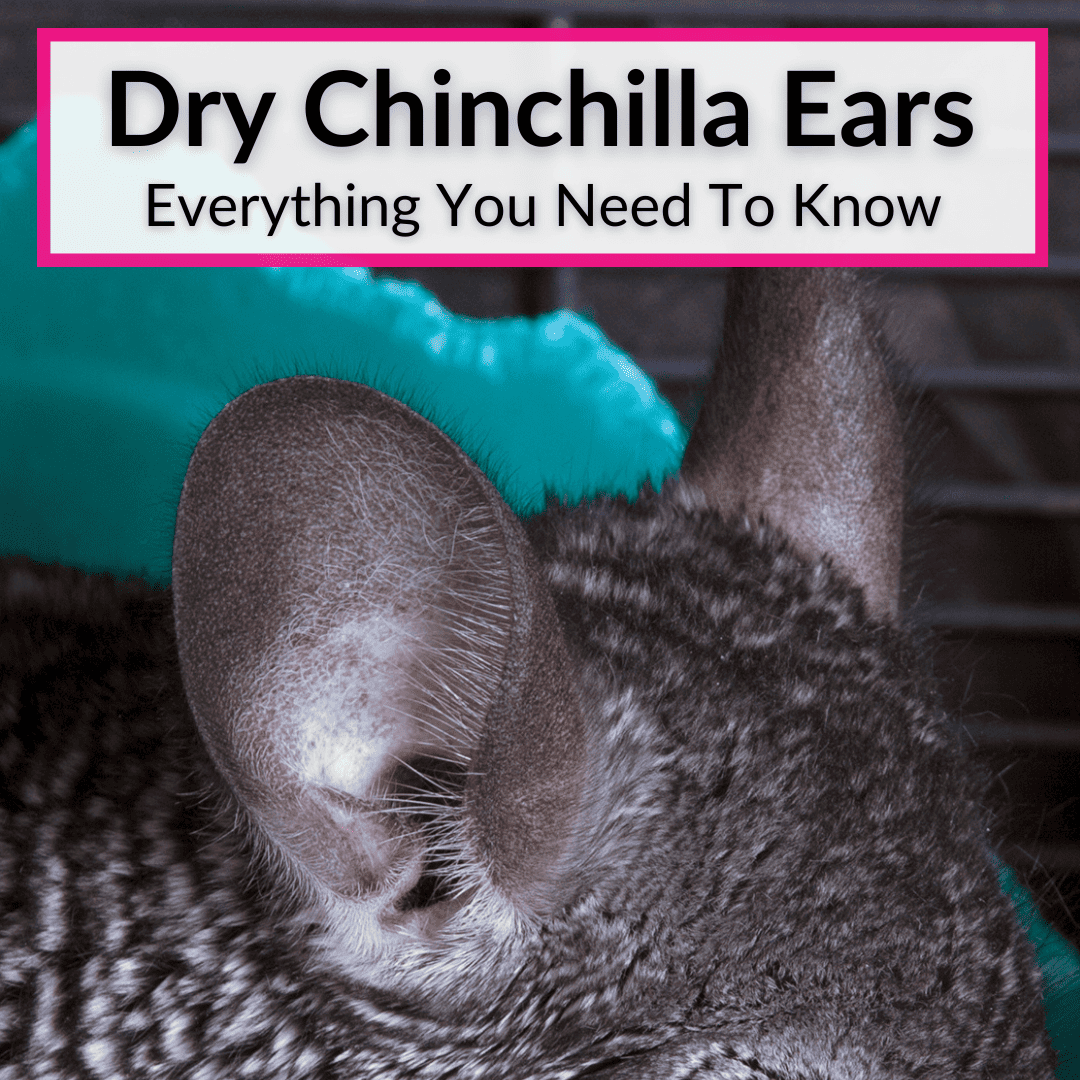
They don’t suffer as many health issues as most other rodents.
And they live longer as a result.
With proper care, they can live 15 to 20 years!
But that does not mean they never get sick. One possibly issue you may face as an owner are dry chinchilla ears.
There are actually a number of health problems that can cause dry ears in chinchillas.
Keep reading to find out what can cause this problem and how to treat it. We will also give you some tips to prevent it from recurring. As with most issues, prevention simply comes down to taking good care of your pet.
Contents
- 1 Dry Chinchilla Ears
- 2 Chinchilla Ears Dry Skin: Final Thoughts
Dry Chinchilla Ears
A chinchilla is said to have dry ears if there is hair loss, the skin is patchy, flaky, cracked, red, and dry, accompanied by scratching. Many factors can cause dry ears in chinchillas, including bacteria, parasites (mites), or fungal infections.
Causes Of Dry Ears In Chinchillas
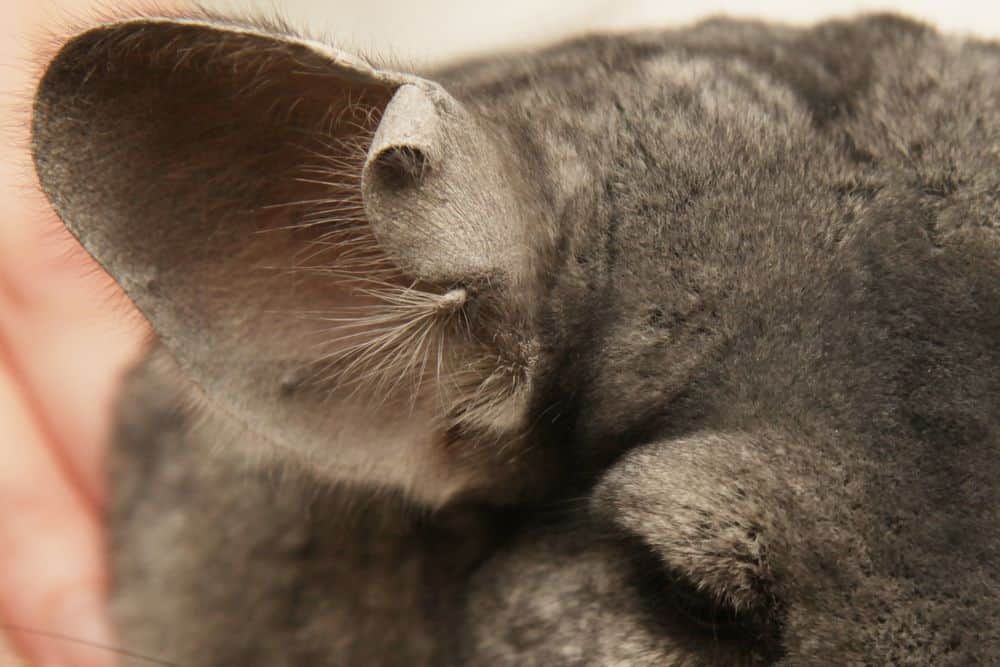
Let’s take a closer look at the infections and infestations that are all possible causes of chinchilla dry ears.
Bacterial Infections
In the warm and humid months, chinchillas are susceptible to a host of bacterial skin issues. These can result in dry, flaky ears, since the warm weather creates a breeding ground for bacteria such as Pasteurella multocida, Staphylococcus aureus, or Fusobacterium necrophorum. These bacteria can result in pyoderma which could result in dry, flaky ears.
Parasites
Parasites, like Cheyletiella mites, can also cause itchy and dry skin in chinchillas. They result in an inflammatory chinchilla ear infection called cheyletiellosis, or walking dandruff, since the tiny mites look like dandruff flakes that move.
Note that parasites in chinchillas can be transmitted to humans, as well as dogs and cats. If you see ‘walking dandruff’ on your chinchilla, please isolate and treat it right away.
Another type of chinchilla mite is the scabies mite. The female scabies mites burrow into the skin and lay their eggs there. The condition typically starts with dry, scaly, flaky skin and progressively worsens.
There are various sub-species of scabies mites, including Sarcoptic mange, Psoroptic or auricular scabies, Corioptic scabies, Notoedric scabies, and Dermatorectic scabies.
Fungal Infections
Dermatophytes, or ringworm infections, are also a cause of dry, itchy ears in chinchillas. Since the ear flaps have little to no fur, the lesions are clearly visible.
Your chinchilla might also have lesions elsewhere on its body. Fungal infections are extremely itchy and result in dry, flaky ears and skin.
Chinchilla Dry Ears Treatment
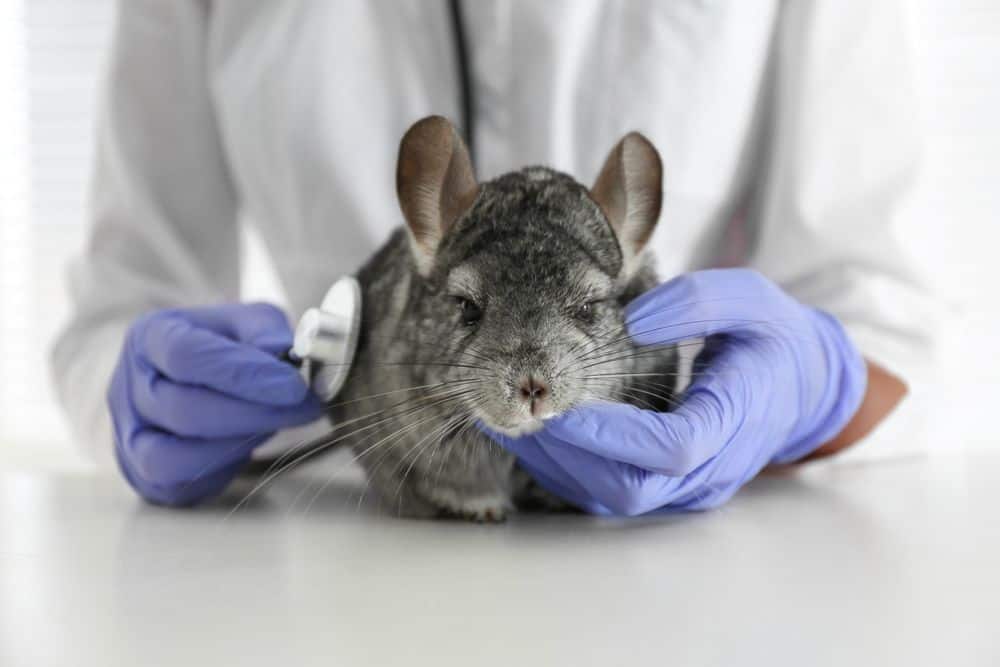
Since there are many different causes of chinchilla dry ears, what you put on them will also vary. Your vet will be able to prescribe the correct treatment. In general, here are some steps to take.
Clean The Ears
Gently clean your pet’s ears with a soft, sterile cotton ball dipped in some peroxide. If the ears are inflamed, oozing, or extremely tender and sensitive, your pet might not let you touch them.
In such a case, the vet might have to sedate your chinchilla to clean the crusty ears. If the fur on the ears is matted, you might have to clip off the extra hair to access the skin beneath.
Skin Creams
For bacterial skin issues, your vet may recommend antibiotic skin creams to apply on the dry ears. For fungal issues, your vet might prescribe some antifungal creams to apply topically. For mites, use baby oil, olive oil, etc. to prevent mites from reproducing.
Injections Or Miticides For Mites
If your pet has mites, it may need miticides (spot treatment) as prescribed by the vet. For severe infestations, it might need Ivermectin injections every few weeks to eliminate all of the mites.
Other Home Remedies For Chinchilla Dry Ears
- Sometimes, not doing anything can help. Simply let your chinchilla be. The skin issue and dry ears could resolve on its own.
- Apply some mineral, baby, or olive oil. Use a Q-tip to apply some mineral oil, baby oil, or olive oil on the dry skin, scabs or crusty skin.
- Try petroleum jelly. Apply some plain petroleum jelly, like Vaseline, to relieve the dryness.
Symptoms Of Ear Mites In Chinchillas
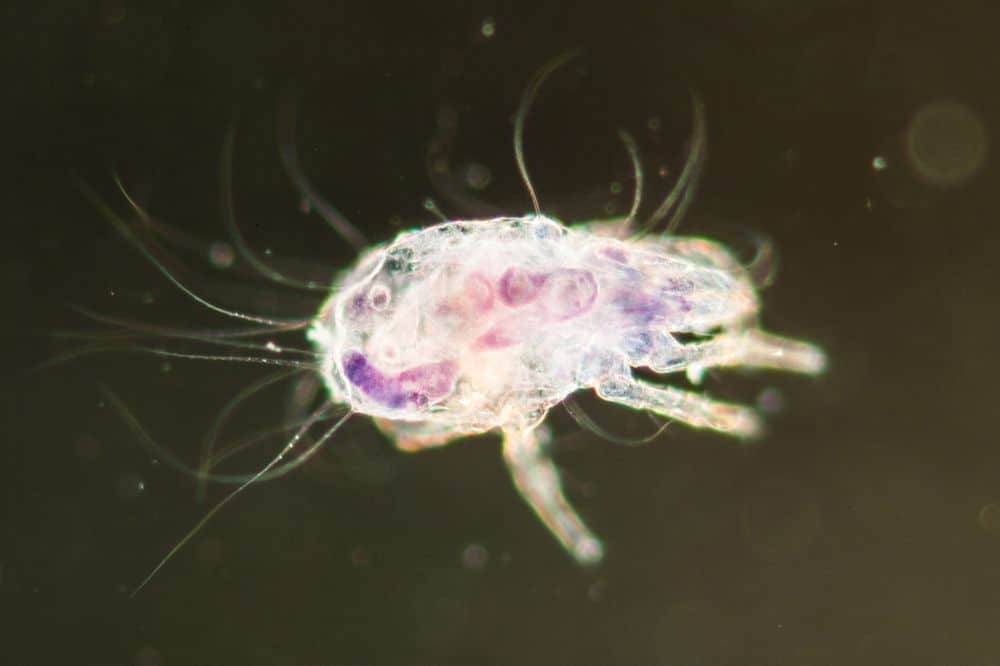
Ear mites can cause a host of symptoms in chinchillas, in addition to dry ears. Here are some of the other possible symptoms.
- Chronic dandruff: As mentioned above, you might see walking dandruff on your pet’s ears and neck.
- Black spots: Mites are black in color, and you might see spots on your chinchilla’s inner ear.
- Scratching: Your chinchilla might continuously scratch its neck scruff, ears, head, and along the back.
- Sores or scabs: The scratching, licking, and continuous grooming could give rise to scabs, bumps, or blisters.
- Skin and fur changes: The affected chinchilla might have patchy hair loss, reddened skin, crusty scabs, or oily patches on the head, neck, shoulders, and back.
- Head shaking: Mites cause an itchy sensation that could cause your pet to shake its head.
- Circling, unsteadiness, falling over: Sometimes, mites can infect the animal’s inner ear, which may cause the chinchilla to circle or fall over.
Some mites, like C. parasitivorax, do not cause any signs, other than hair pulled out in clumps. Mites like C. cavaie cause scratching, redness, hair loss, and skin ulcers from excessive grooming.
Are You Supposed To Clean Chinchillas’ Ears?
Most chinchillas self-groom. If you maintain adequate cage hygiene and provided your pet with regular dust baths, it won’t need to have its ears cleaned separately.
However, if your chinchilla has visible ear issues like gunk, waxy buildup, or debris in the ears, then you might want to clean them. Here are the steps to take when cleaning a chinchilla’s ears.
- Ask your vet: Consult with a vet if your chinchilla needs to have its ears cleaned
- Disinfect your hands: Make sure your hands are free from germs before touching your chinchilla’s ears.
- Use a solution: If your pet’s ears are oozing and there is a sign of ear infection, use Canaural ear drops or Zymox Ear Solution to clean them. Add a few drops of one of these inside your chinchilla’s ears. You might need a family member to hold your chinchilla.
- Use a homemade solution: If you don’t have Canaural drops, make a solution of witch hazel and peroxide in a 50:50 ratio. Using a dropper, add a few drops of the mixture inside each ear.
- Daily drops: Use the drops at least once a day for a week or until the ear infection clears.
- Do not pull out crust scabs: That could cause intense pain to your chinchilla.
What Are The Dark Spots On My Chinchilla’s Ears?
Some chinchillas have black or dark spots on and inside their ears. These could be due to pigmentation, which is usually normal and nothing to worry about.
If the black spots are moving, they could be mites. If your chinchilla is scratching itself, has raw or dry ears, has hair loss, or has other signs of mites, please take it to the vet for appropriate therapy.
How To Prevent Ear Mites In Chinchillas
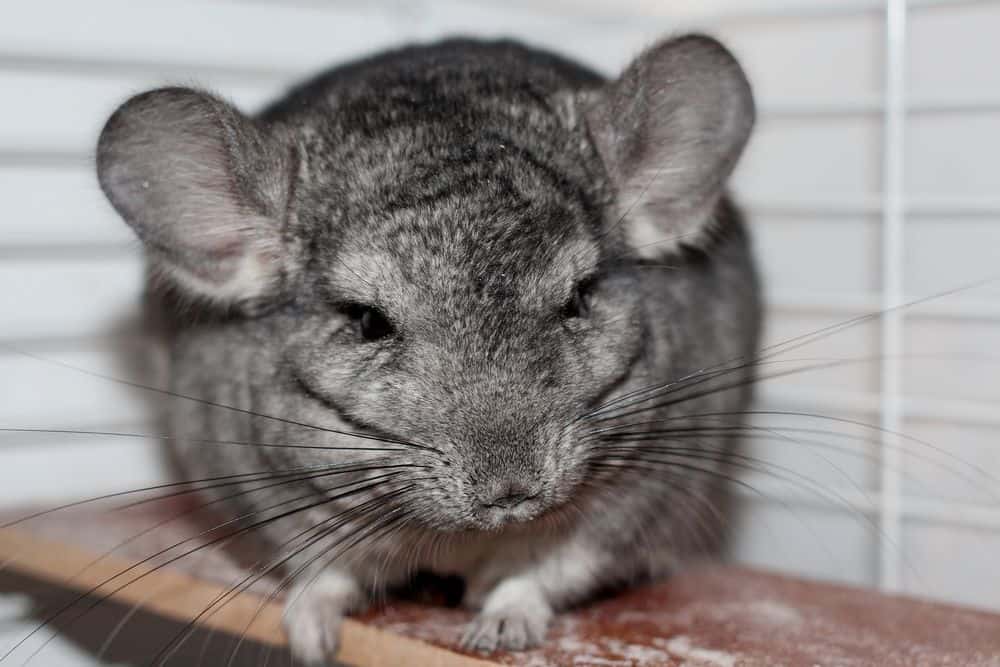
If one of your chinchillas has ear mites, you’ll want to prevent them from spreading to other pets, and also from recurring on the same pet. To prevent ear mites in chinchillas, take the following steps.
- Thoroughly clean your pet’s cage and bedding. Use vinegar solution and clean all the surfaces inside the cage. Replace moist bedding with fresh and dry bedding. Make sure the new bedding you use is free from mites.
- Keep infected chinchillas separate: Mites can be transmitted to other pets, so separate all infected animals.
- Use oil: Add a few drops of mineral oil, baby oil, or olive oil inside the chinchilla’s ears. This will prevent the mites from reproducing.
- Keep an eye out for symptoms: Check your pet weekly. If you see continuous scratching, head shaking, fur loss, etc., please act fast and seek treatment for mites.
Chinchilla Ears Dry Skin: Final Thoughts
Dry chinchilla ears can occur for a number of reasons. It is usually the result of a bacterial or fungal infection, or a parasitic infestation. The most common culprit when it comes to parasites is the ear mite.
If your chinchilla shows any of the other symptoms of one of those issues, you should get it checked out by a vet, so they can prescribe the appropriate treatment. If you see no other symptoms and your pet seems to just have dry ears with no underlying illness, you can try to treat it at home, though I would still at least just give your vet a call and see what they think.
Leave a Reply